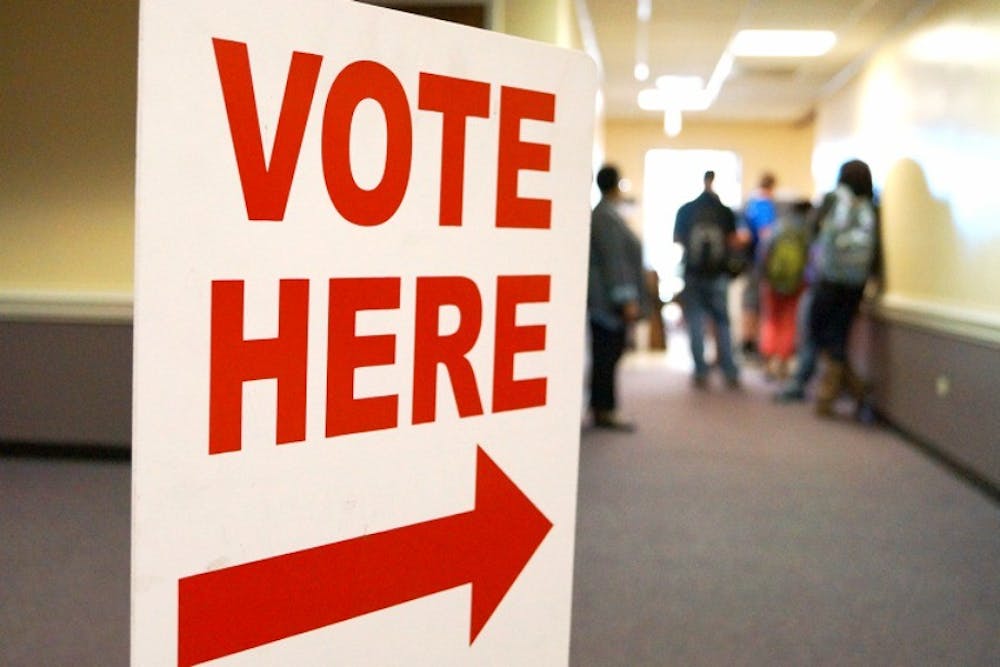By Greta Hallberg, For The Miami Student
You'd have to live under a rock not to know about the 2016 presidential election. Donald Trump is making a bid for the Oval Office. Hillary Clinton wants her place in history to be the West Wing, not the East. The campaign for the White House has been under way for what feels like years.
This election is exactly one year away. The candidates have not even been chosen yet and American voters are already bored with the name-calling and petty fighting of the 2016 election.
But what about the 2015 election?
What election, you ask? Exactly. On Tuesday, Nov. 3, states put their school board and city council members up for a vote. The election was uneventful, almost boring, save for a few states with interesting ballot initiatives or major candidates that were put up for a vote.
One of them was Ohio, which had a major ballot initiative to legalize recreational marijuana. Sorry stoners, you're going to have to continue to buy your weed illegally. (Based purely on the smell of most house parties, this won't be a problem.)
Either way, the media coverage and conversation around the 2015 election was minimal.
State and local governments make futile attempts to bring citizens to the polls every year, with low success rates. Voter turnout, especially in off-year elections, is pathetic. 2014 was a dismal year for American politics, when just 36.4 percent of the eligible public turned out to vote.
Our turnout in the 2012 presidential race was better, at roughly 60 percent. We lag behind other developed democracies that get 70 to 80 percent of their voting population in national elections.
Why is it that American voters don't make it to the polls?
We have too many elections.
Over time, the American system strived to be increasingly democratic, allowing voters to elect more officials. U.S. Senators now win by a popular vote, instead of elected by state legislatures, thanks to the 17th Amendment.
Enjoy what you're reading?
Signup for our newsletter
Presidential candidates for each party are chosen from a series of primary elections. Before 1968, each party selected a candidate at the party convention during the summer before the ballot. Campaign season was four months long, which culminated on the first Tuesday after the first Monday of November.
Hillary Clinton essentially launched her White House bid the day after Obama's second inauguration. She and the other leading candidates of both parties, has been shaking hands and kissing babies for years before the formal campaign began. Last spring, the candidates publicly announced their intentions to run for the Oval Office, launching intense efforts to fundraise.
In January, they'll caucus in Iowa and swing voters in New Hampshire, before campaigning in the primaries of other states. These candidates will have campaigned for over a year, and against members of their own party no less, before one representative from each party is officially selected at their national conventions next summer.
While these processes seem more democratic - the people have more power to decide - it has ironically made Americans less inclined to vote, thus doing more harm to our democracy than good.
In America, every season is campaign season. Political elites and the media always speculate about the next election, sometimes before the first one is over - Who will run in 2020 (besides Kanye West)? Which party will win a majority in Congress? Who will replace Boehner to represent the eighth district of Ohio?
Americans have grown weary of voting in elections. Heck, they're sick of hearing about them. With constant campaigning and discussion about elections, it becomes easier and easier for the average voter to simply tune it out.
If we truly want a democracy where more than half our voters make it to the polls, we've got to give the election talk a break.




